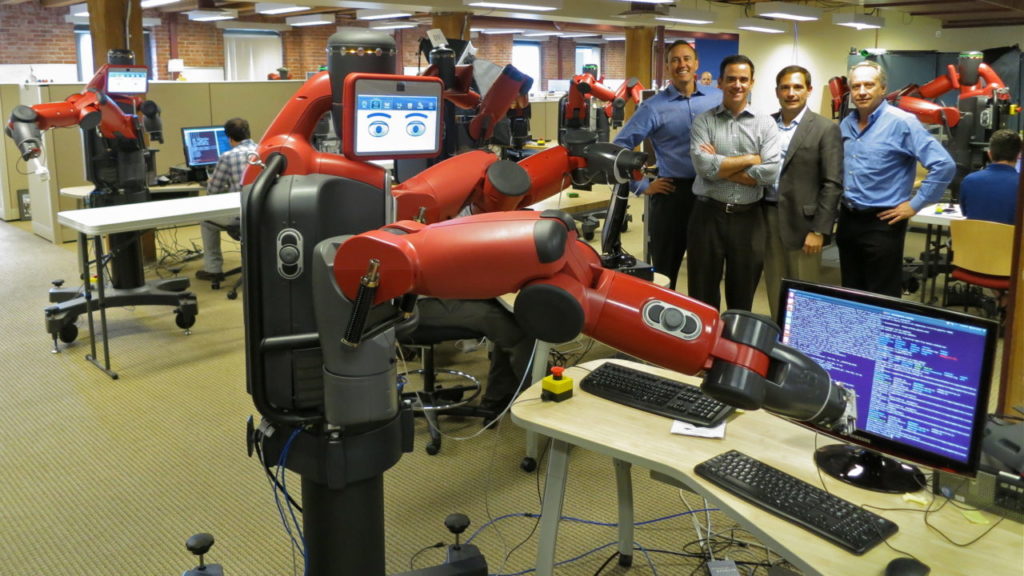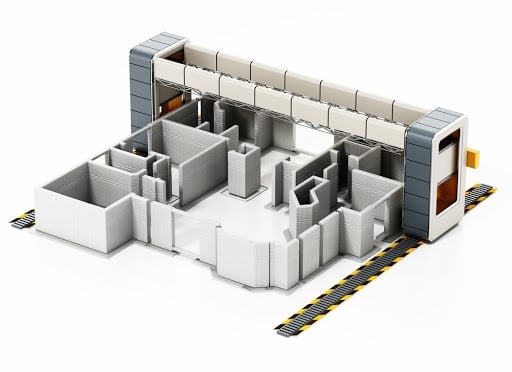We’ve seen the scenario play out numerous times in movies and books. Evil, warmongering privateers use robotics, seemingly to make our lives better, and then eventually, the robots decide human beings are a threat and thus need to be eradicated or enslaved. Despite the obvious absurdity that such a scenario presents, believe it or not, this is a fear many Americans have.
According to a survey conducted by Chapman University in 2015, “Robots” and “Artificial Intelligence” rank in the top 7 fears, Americans have about technology. Perhaps these Hollywood films are resonating with Americans in this way.
But should we be afraid of the impending robot apocalypse?
Absolutely not. The concept of robots taking over the world and enslaving the human race is a ridiculous notion, and most people know this. But, there are many people all around the world who fear that technology is advancing so fast we will eventually find ourselves out of jobs. And yes, they see this as a bad thing.
Now, aside from the obvious fact that if such were ever to be the case, then that means most Americans would end up enjoying a life of luxury and leisure beyond our current comprehension. Unfortunately, however, it is merely a fantasy. But this hasn’t stopped many on both the left and the right from propagating this irrational fear that technology will put us out of work. Even famed scientist Stephen Hawking ascribes to this fallacy.
Clearly, if smart people say it’s a problem, then we must do something about it, right?
Wrong. Although, a simple dismissal of the argument by saying something to the effect of, "we'll cross that bridge when we get there" cannot suffice, however. No, we need to understand just why this fear is irrational, so we can put to bed any assumptions that humans can be made worse off through mechanization and automation. To understand this argument, one must understand how supply and demand work within a price system, and how they correspond to scarce resources.
It is unreasonable to assume that human labor instead of machinery is in any way a valid replacement for the value that the machines provide in our lives. Most of us understand and agree with that basic premise. The disagreement is whether or not we can reach a point that which the machines will become intrusive, and lower our quality of life. This is at best a horrible fallacy.
While it is true that the machine will require fewer laborers for a particular process, it is wildly inaccurate to assume that mechanization, in general, can or will ever reduce the need for human labor.
There are many historical examples we can point out to prove this point, but none better than Eli Whitney’s cotton gin. In the late eighteenth century, Whitney created a revolutionary device that removed the seeds from the cotton, which up until that point, could only be done by hand. Because slave labor dominated the cotton industry, it directed a large degree of labor toward this one task. With the advent of the cotton gin, according to the logic of the anti-mechanization crowd, slave numbers should have greatly reduced as the slaveholder would have little need for excess slaves given the effectiveness of this device, correct?
Wrong. As a matter of fact, many people saw the cotton gin as the worst thing that could happen to slavery, as it had the opposite effect. The cotton gin allowed these planters the ability to mass produce in numbers previously thought to be unthinkable. The excess supply of fabrics, clothing, and bedding that primarily contained cotton lowered the price of these goods, thereby making them affordable for many more people. This naturally increased the demand for these products, which had the effect of increasing the demand for human labor in the cotton industry, as more slaves were needed to man the cotton gins, on down the line throughout the production phase.
Now, to fend off any straw man attacks regarding the use of a device that perpetuated slavery, again, the example was only to show how mechanization did not reduce the need for human labor, rather greatly increased it. Pick any industry with a similar advancement that didn’t use slave labor, and you will find the same result, insofar as there existed an increased consumer demand for the product. And that is precisely how the price structure works and corresponds with scarce resources. When you use resources more effectively, you decrease the input (labor) necessary to produce the good, thereby reducing the price and increasing output (quantity sold).
You may be thinking, “yes, I understand how machines provide value to our lives, but what happens when machines become so smart that they are capable of performing most, if not any task a human being could perform?”
Well, first, that is a bit fallacious. There are a great many jobs that require individuals to make frequent subjective valuations and calculations. Currently, this is purely a human trait as robots lack the ability to make ‘gray area’ decisions. While there does seemingly exist some artificial intelligence that apparently can disobey human commands (which is an indication of its ability to make an intuitive decision), there is no industrial purpose for a machine that will tell off its boss, thus, not a concern as it relates to the labor force.
But, let’s assume the worst and say that machines could be built in such a way that which they could replace all human labor, what then? Let’s further assume the vast majority of human beings are left poor and destitute without the ability to find gainful employment or otherwise the ability to make a reasonable living, as is the common straw man levied against artificial intelligence. Well, luckily we won’t have to address this scenario because it is virtually impossible. It’s important to remember that workers are consumers.
If one has no ability to make or earn a living, he hasn’t the ability to engage much in the marketplace either. This ultimately means that robots would essentially be producing for no reason. No producer could sustain his greed without a corresponding degree of consumption, and last I checked, machines don’t consume much. The reduction in consumption stemming from any loss in aggregate employment would have immediate effects on the economy. Producers would quickly find themselves without any need for machines, and a great need for human labor having little ability to pay for the upkeep on the machines. And when you multiply this by the millions of actors in an economy, you find that the mechanisms at work always tend toward equilibrium.
Essentially, we never really have to worry about machines eliminating the need for human labor, insofar as there remains the need for human consumption (by the way, if machines ever really do develop the need to consume in the same way we do, then we can start worrying about a robot apocalypse, but I wouldn’t put too many eggs in that basket).
So, no, we shouldn’t worry ourselves about robots taking over. And we certainly shouldn’t worry about machines making our lives easier. We should embrace those changes as they are a net positive for humanity. After all, that is the goal, isn’t it? To make processes and tasks more efficient as a means to satisfy a greater need in society? And it’s important to remember that we are not our jobs. We should not be so married to our line of work that we advocate for making humanity worse off purely as a means to protect jobs for a dying industry.
If such innovation has displaced you, then take this as your opportunity to learn a new skill that actually adds value to society. It, by definition, must also provide more value to your life as well.











